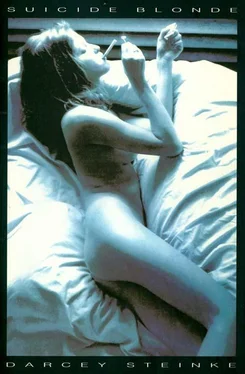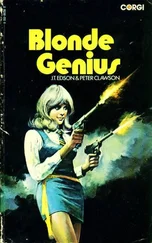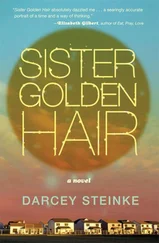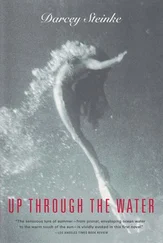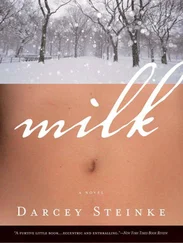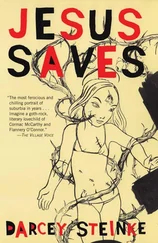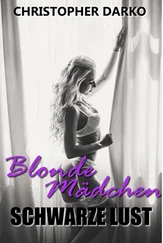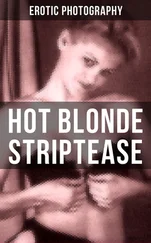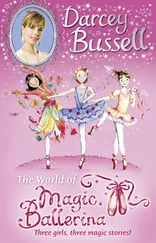“Yeah,” I said. “Relationships.”
Bell looked at me in a blank way that made me sure it was time to leave. “We should get married,” he said. “My father would love you.”
THE RENTAL CAR HAD A DASHBOARD OF WARM GREEN LIGHT. The interior smelled of the immortality of plastic. The engine was quiet and it seemed more like my mind that pushed me forward than the cylinders of exploding gasoline. The headlights made people on the street momentarily transparent and that image of a face fading away as if from memory got me thinking of Bell, and about how little one person can help another. I'd tried to convince him he wasn't responsible for his father's death and give him some possibility of a future. But the only future I was willing to work for was one together. I could only save him through his commitment to me. And Bell was gay, or at least ambivalent enough to make the idea of marriage ridiculous. But even if I were a man, as I often used to wish, I couldn't stop him from going down. It was what he wanted. I could tell by the way he held his cigarette, how when he spoke he looked coldly through my head and into the next world.
I felt guilty. If I'd ever really loved him, I should have stayed nearby. But I couldn't decide whether it was stronger to leave him or to stay and help. I remembered my mother's face, puffy from crying after Dad left. She took both my hands into hers and said, “Promise me that if you are ever treated badly you will leave.” I only wish all her crazy oaths and advice wouldn't rise so often in my mind. But it was more than that, I was sick of Bell and Madison and Pig and all of San Francisco, sick of being nice, being nurturing, being a good sport, of appeasing people. I started to think of maggots festering in a wound. I thought of betraying people who loved me, of piss and shit mixed foully in a backed-up toilet. I figured if I knew exactly what I wanted then maybe I'd stop being so polite and that's why I had to speak with Kevin. But what did he know about my crazy ideas of love and family — intensified by my parents’ divorce and my own faithless life? I thought about the story my mother often told of reaching for my father in bed and him saying, “Don't embarrass yourself.” Could I blame this whole thing on them, on their divorce? Even as a child I was insecure and sneaky. I always needed a huge amount of attention and I often pretended to be sick or stupid to get it. I'd been the little actress and had not lived the right life from the start.
I grabbed the wheel so hard my knuckles whitened and a pain shot into my palm. I accelerated, mesmerized by the red taillights. I understood in an atavistic way the idea of murder, how frustration, fury and pain could be catharted momentarily by doing something horrible. I turned my signal on, eased into the middle lane, the tick and blink hypnotized me. I wondered if I was going to L.A. to kill Kevin.
I felt his long fingers reaching into my skull. The equation went like this: Bell + Kevin and Jesse + Bell = Jesse vs. Kevin. To think of him leaning toward me, that first deep smell of his body. I imagined him slipping away from his reception to meet me at a hotel, a champagne bottle under his tux jacket, a piece of his wedding cake stuffed into my mouth. As he pulled down my panties he'd say he liked the idea of betraying his wife on their wedding day, that it was poignant and true. I tried to think of when Kevin and Bell were together in Chinatown for the new year: lanterns, the long paper dragon zigzagging over the street, the firecrackers. Bell told me that afterward they'd gone for a drink to a gay bar. He'd brushed his hand against Kevin's cock, both of them laughing and flushed like children.
The road narrowed past Half Moon Bay, and the regularity of houses diminished. The sea was black and the mountains blue in the moonlight. Occasionally I'd see a low California-style ranch, dark except for the glow of a blue TV. America is America, I thought, because of the things we do together. The road soothed me, the water gently shifting, like someone stroking my hair. I turned on the radio but all I could find were men talking about the probability of war and a religious talk show. A man and a woman talked about AIDS education, how the literature was a how-to manual for homosexuality, how celibacy was the only answer now.
I thought of the Pacific, of the crabs and fish that lived underneath the surface. The Atlantic seemed dirty, even scrawny in comparison. When I first came to California, it seemed a clichéd utopia where people took endless vitamins, spoke with gurus, spiritual healers, herbalists, accepted karma as a reality. I resented their spiritual superiority and didn't care much whether Nostradamus was right and that an earthquake might send the hippies, surfers, movie stars, right-wingers toppling into the sea. I imagined the wreckage washed up on the Nevada coast: crocheted hats, tie-dye, skateboards, love beads. But out here, closer to the land, I realized how the West Coast balanced the East.
JUST BEFORE MONTEREY MY HEADLIGHTS ILLUMINATED A GIRL walking quickly down the soft shoulder. She was wearing tight jeans and a T-shirt and was rubbing her hands over her bare arms. She was so young, I wondered why she was out so late. I slowed but she didn't look up. She seemed upset, like after a fight with a boyfriend. There were headlights in my rearview mirror so I sped ahead. Her short hair and sullen sexy walk reminded me of the girls I'd admired in high school, the ones who did everything first. In the rearview mirror I watched the car stop, the driver was an older man. When she got in there was a pouting curve to her hips that told me he was not her father. They passed me easily. She leaned into him, her hair caught in the wind.
The highway into Monterey degenerated into a strip. It was too late for anything to be open. On the main stretch were gift shops, the slightly upscale kind, that sold driftwood art and watercolor paintings. Down the road was the aquarium, and all that was left of Cannery Row. There were lots of T-shirt places, a few antique stores, a place that sold kites, one for wind chimes. There was a McDonald's and a Taco Bell and a restaurant called the Grapes of Wrath. . like everywhere else in America that was special, it had been spoiled by gentrification.
Just outside the village it started to rain, so I decided to stop at a little hotel I saw on the bluff to my left. I drove up, parked my car beside a VW van — the only other car in the lot. The rain was harder now, beating on the pavement and on me as I dashed into the office. The fluorescent lights buzzed and the muted sound of rain was cozy, made me glad I'd stopped. The place had the intimate aroma of sweat and curry and was shabby, with cracked leather couches and a bucket near the desk catching a melody of drips from the stained ceiling. There was a noise in the back room and simultaneously an Indian man pulled back the beaded curtains that separated the back room from this one. He looked sleepy and his shiny hair stuck up in the back like a bird. He was barefoot and his brown pants and white T-shirt were wrinkled. I saw his wife in the slit of the curtain, curled on the bed, her long hair spread out over the pillow. She wore a red dot on her forehead and I imagined her in a golden sari, on a blue California day, straining leaves with a long pole from the pool outside. The man pointed at a handwritten sign under the glass of the counter. I handed him twenty dollars and he gave me a room key.
Outside, I stood under the awning, the clouds gave the sky a grayish purple tone and rain blew across my face. It was chilly and I walked toward my room. The curtain of Room 8 was slightly parted and the TV was on. I could see a man and a woman in one of the two double beds. A pattern of light and shadow showed the woman's head nuzzled into the man's hair, his arm thrown back to touch her waist. The curtain of my room was closed, but I could see through that the TV was on. This scared me and I started back toward the office, but the light was off and I knew the man was back in bed with his wife.
Читать дальше
